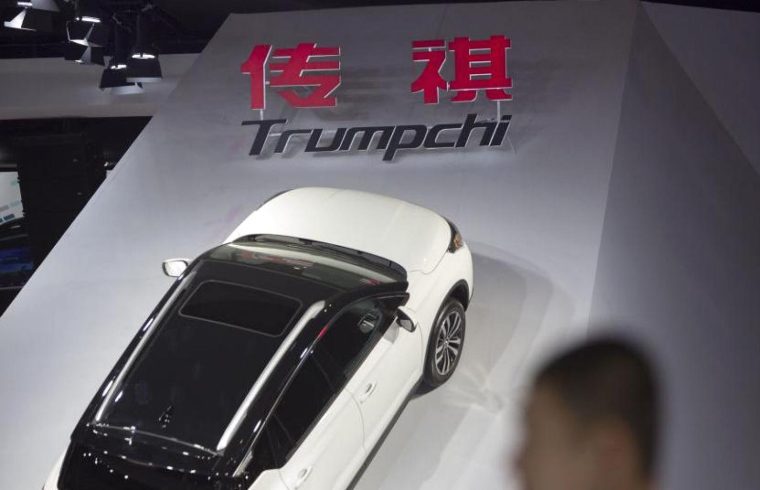
This article is part of a “Reporter’s Notebook” series, wherein CNBC journalists submit tales and observations from the field.
GUANGZHOU, China — I’m sitting in an auto plant in Guangzhou in southern China watching SUVs made by one of the country’s top carmakers come off of a production line every 57 seconds.
Every so often, the American classic song “Top of the World” by The Carpenters blares through the factory — an indicator, I’m told, that the robotics on the line have detected a potential issue that needs to be addressed by one of this facility’s thousand human workers.
It’s also a reminder — albeit a surreal one — of where some of these vehicles will be headed.
The carmaker, Guangzhou Automobile Group (also known as GAC), plans to sell these SUVs among other models in the U.S. The Chinese state-run company takes pride that its SUVs are becoming popular among drivers in the medium-to-high-end segment in China.
But there’s one little hitch that the company management didn’t foresee: the name.
This car is a Trumpchi.
“We called it Trumpchi in 2010,” GAC Motor President Yu Jun told CNBC in his first international TV interview. “We never imagined that seven years later the name would sound so similar to the name of President [Donald] Trump.”
In China, Trumpchi (pronounced “Trump-chee”) is an English take off the word “Chuanqi” which the president of Trumpchi prefers to translate as “delivering goodness.”
In case you’re getting suspicious that the name is a Donald J. Trump brand rip-off, it’s not uncommon for Chinese companies to fashion an English name out of Chinese one. For example in the car industry, Chery Auto is derived from “Qirui” in Chinese. Geely is “Jili.”
GAC’s Yu said he plans to deliver a whole host of Trumpchi goodness to the U.S. when it enters the market in 2019. Trumpchi was the fastest-growing Chinese car brand in China last year and ranked highest among Chinese auto brands in research firm JD Power’s 2016 quality survey.
Trumpchi’s progress in China has given it the confidence to believe it can beat the odds and do what no other Chinese car brand has been able to achieve for more than a decade: conquer the U.S.
“GAC Motor has dreamed of becoming a world class brand. We have made great achievements domestically within a short period of time,” Yu told me at a showroom in the company headquarters. “American drivers are like Chinese drivers. They both like big sizes, big spaces and luxury interior.”
For years, the Chinese have been attempting to build a globally competitive auto industry — and they’ve struggled.
Chinese car brands have sold in emerging markets, yet exports have recently softened. The U.S. has been an elusive market for them — it’s fiercely competitive and Americans have established brand loyalty.
On top of that, fairly or unfairly, the “made-in-China” label has an image problem. So Trumpchi’s efforts will be a gauge to see if Chinese automakers can upgrade themselves and compete on the international stage.
“[The U.S.] has the highest standards — which is a good test for us,” Yu said. “If we can succeed in the U.S. market, we can succeed anywhere in the world.”
The plan is first to export cars from Trumpchi’s factories in China, but Yu said he’s considering partnering with a U.S. automaker to produce locally. He sees potential to build his own American factory down the road.
Despite the anti-China rhetoric and threats of a trade war out of the White House, Yu said Trumpchi is in it for the win.
“Even if Trump imposes tariffs on imported cars, this will not diminish our desire or decision to enter the U.S. market,” he said.
Is the Trump name a help or a hindrance?
“It’s hard to say,” he said while laughing. “We’re still trying to figure that out.”
If he does, Trumpchi and China’s auto industry might feel they are finally one step closer to being on top of the world.



